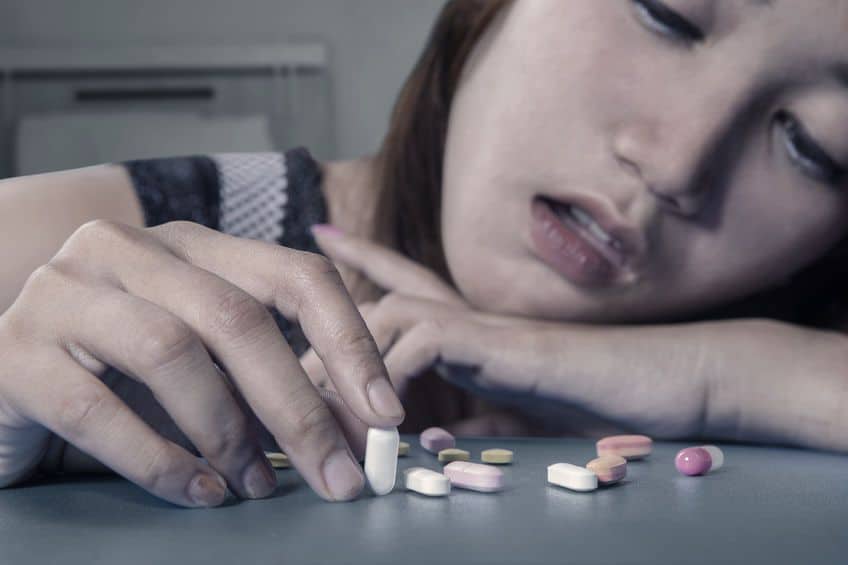
The Powerful Effects of Drug Addiction on the Brain
November 30, 2017
We all know that drug abuse is bad for the body and the mind, but most people don’t realize just what prolonged exposure to recreational drugs can do to the brain. It’s safe to assume teens aren’t aware of these hidden dangers, but, as parents, it may be helpful to learn why it’s important to help your teen son or daughter overcome an addiction. The more this knowledge is shared, the greater the possibility that we can eliminate drug addiction from our communities more completely.
How Does the Brain React to Drug Use?
As an individual engages in drug use or abuse more often, they run the risk of becoming an addict. While physical addiction is a problem of its own, the effects on the human brain are what makes addiction such a difficult problem to overcome. Drugs affect the brain in a couple of different ways.
Some drugs, most notably heroin and marijuana, mimic those “feel good” chemicals in the brain, commonly known as neurotransmitters. When an individual gets high on one of these drugs, the chemical makeup of the drug tricks the receptors in the brain, forcing it to activate nerve cells. This process causes abnormal or false messages throughout the body and the rest of the brain. If this process is triggered too often through frequent drug use, it can cause more severe and long-term problems.
Meanwhile, other drugs, like cocaine and methamphetamine, trigger the overproduction of a real neurotransmitter, dopamine. When this happens the brain can’t recycle dopamine at the normal rate. This heightened state causes the brain to receive false messages, creating a communication problem in the brain that ultimately affects the functioning of the body’s key systems.
However it happens, nearly every drug from cocaine and heroin to nicotine and marijuana targets the “reward center” of the brain. This is usually only affected by the release of dopamine, a process these drugs falsely initiate. Because the brain likes to feel good, it tries to remember this feeling and encourages activities that will recreate this sensation more often. This is why people tend to abuse the same drugs with greater frequency.
Long-Term Effects of Drug Abuse
After awhile, the brain becomes accustomed to those increased levels of dopamine, accepting the surges as normal processes. Neurons will likely reduce the amount of dopamine naturally released by the brain, as well. This means that, during a sober state, the brain will release less dopamine and neurons may begin dying off. This, in turn, affects the emotional state of the drug user. He or she will feel depressed, irritable, and lifeless. Things that once brought pleasure to the person will no longer produce the same joy.
As a result, the person needs to get high just to bring the brain back to peak operating condition. This is also why it takes more of the drug to get that high feeling. As the brain grows used to the amount of drugs that once produced a high feeling, the user will have to take additional doses to feel that high feeling. When drug counselors and doctors speak of the brain building up a tolerance, it’s this process to which they’re referring.
So, what can you do to help someone overcome this type of condition? First, it’s important to recognize this is an illness and, much like diabetes or asthma, it will be a long-lasting struggle to cope with it. Very often, one rehab treatment program won’t be enough. Most people struggling with addiction do have relapses and most go through a new treatment program each time. The addict should not be made to feel worse for lapsing, but should be encouraged to stay hopeful in the belief that they can get clean again.
There are two types of treatment, behavior change counseling and medications. In behavior change counseling, such as those services offered at Hillcrest Adolescent Treatment Center, clients are taught to adjust their lifestyles. They learn to identify triggers and eliminate them from their lives, as well as embracing healthier lifestyles.
In some cases, medication can help reduce the effects of drug addiction and make it easier for the addict to quit his or her habit. This type of treatment is most often successful with addictions to tobacco, alcohol, and heroin or other opioids. Often, facilities combine these methods to attain the best results with their clients.
If you know someone in need of treatment, contact Hillcrest Adolescent Treatment Center to find out the best way to help your loved one. Your support and understanding will go a long way toward helping them to live a better life.

